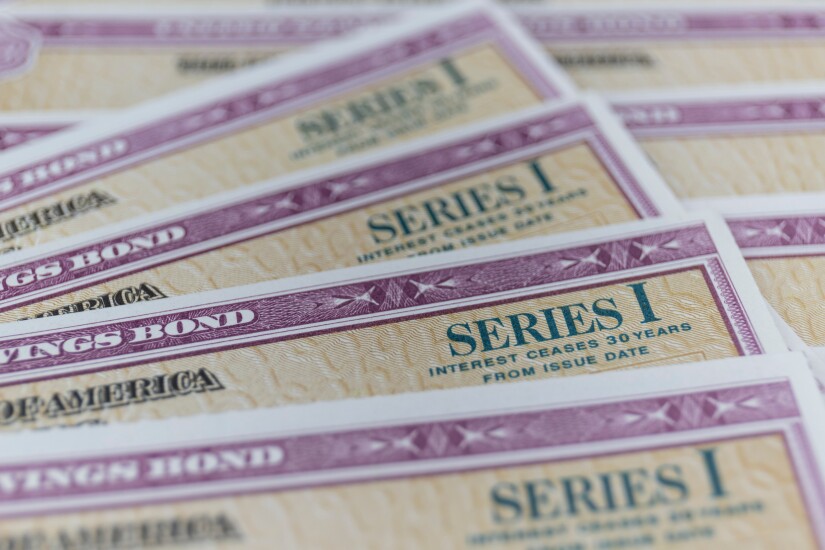Welcome back to "Ask an Advisor," the advice column where real financial professionals answer questions from real people. The topic can be anything in the world of finance, from retirement to taxes to wealth management — or even advice on advising.
Inflation has a way of making little-known investments suddenly very popular. Last year that investment was I bonds, also known as Series I Savings Bonds, which yield an interest rate that's tied to rising prices.
In the spring of 2022, as inflation soared to levels not seen since the early 1980s, the return on I bonds
But all good things come to an end. The Treasury updates the interest on I bonds twice a year, and as inflation came down, so did those astronomical rates. Today, the return from Series I paper
Now that gravity has kicked in, some of the investors who crashed that Treasury server are having second thoughts. One of them, a lawyer in New York who invested very heavily in I bonds, is wondering what to do with his purchase. Should he sell? Switch to another investment? Or simply wait for the bonds to reach maturity? The ambivalent bond buyer turned to the experts for help. Here's what he wrote:
Dear advisors,
I bought a total of $20,000 in I bonds in May 2021 and January 2022. I'm considering redeeming them later this year, when the 6.48% rate ends, and switching to a TIPS (Treasury Inflation-Protected Securities) fund in my 401(k). The new rate for my I bonds is 3.38%, lower than you can get on cash. Or I could just leave everything alone and consider the I bonds a longer-term investment. What should I do?
Read more:
For context, I'm a 35-year-old lawyer in Brooklyn, New York. Apart from bonds, I'm also invested in index funds (in a taxable account), a 401(k) and a Roth IRA. The whole portfolio is about financial independence and retirement. Realistically, my goal is to retire at 50 years old.
Last year, thanks to historic inflation, I bonds outperformed everything else by double digits. But now that inflation is coming down, they're not exciting. What should I do with them?
Sincerely,
Ambivalent in Brooklyn
And here's what financial advisors wrote back:






